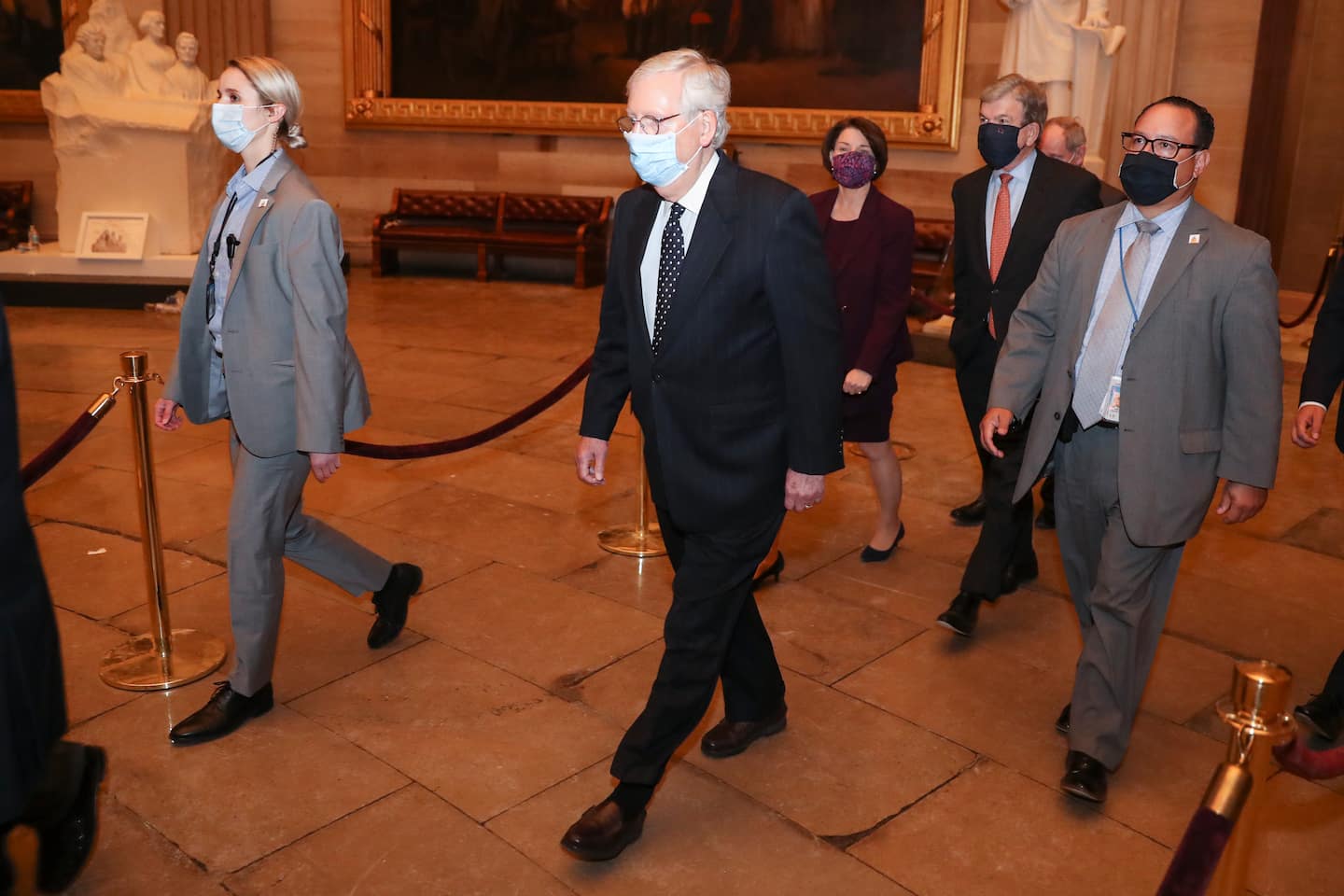What McConnell got — and didn’t — on the filibuster

The truth is decidedly somewhere in between, though, and it’s unlikely all of this changed too much.
One thing we knew: The votes weren’t there to get rid of the filibuster right now. Democrats would need to vote in lockstep to abolish it, and several members have either said they wouldn’t support doing so or have reservations.
The real question, then, was whether they would reserve the ability to do so at a later date, if their members decided that Republicans weren’t operating in good faith. So McConnell gave an ultimatum saying that the rules must require that the filibuster remain intact.
He didn’t get that, but in dropping his demand, he cited two Democratic senators who said they wouldn’t vote to nix the filibuster — apparently rendering the proposal dead for the foreseeable future.
Sen. Joe Manchin III (D-W.Va.) said: “I do not support doing away with the filibuster under any condition. It’s not who I am.”
He added: “If I haven’t said it very plain, maybe Senator McConnell hasn’t understood, I want to basically say it for you: That I will not vote in this Congress — that’s two years, right? — I will not vote” to change the filibuster. Of any possibility that he would change his mind, he said: “None whatsoever that I will vote to get rid of the filibuster.”
Sen. Kyrsten Sinema (D-Ariz.) took a similar position, with her office saying that she is “against eliminating the filibuster, and she is not open to changing her mind about eliminating the filibuster.”
Both, notably, had previously said that they firmly opposed such a change. Manchin reiterated his position after the 2020 election — though before Democrats retook the Senate by winning both Georgia runoffs — by saying, “I will not vote to do that.” Sinema, too, said last summer, “I’ve spoken about this many times before, and I do not believe we should take away the filibuster.”
To the extent McConnell got something out of this, it was that both made their verbal commitments not to do away with the filibuster in the near future more ironclad and, especially in Manchin’s case, a commitment that nothing will change his mind for the next two years. McConnell spokesman Doug Andres also said Sinema has provided an arguably even more ironclad assurance to McConnell personally that she would reverse course under no circumstances.
Both Manchin’s and Sinema’s comments would, at the very least, make a reversal in the next two years into a demonstrable and clear-cut flip-flop — the kind of thing that could prove a real political liability, especially for Manchin in a very red state. Imagine him opening the door to a more left-leaning agenda after promising not to do so.
But flip-flops do happen in politics — quite a lot, in fact. Politicians are good at finding justifications for doing things they said they wouldn’t. That doesn’t mean it will be the case here, and I’m pretty doubtful it will, for the reasons articulated above. But it’s still technically an option that’s on the table if Manchin, Sinema and their Democratic colleagues decide in unison that the times have become drastic enough for such a drastic measure — a situation such as, say, a pandemic or economic strife.
Many of their Democratic colleagues have already evolved on this issue. For instance, Sen. Jon Tester (D-Mont.), another red-state Democrat, reiterated his opposition to the change this summer but said he might be open to it if the GOP decides to “stonewall, stonewall, stonewall.”
And there’s precedent for such agreements going by the wayside. As The Washington Post’s Paul Kane noted, then-Senate Majority Leader Harry M. Reid (D-Nev.) in 2013 reached an accord with McConnell on modest filibuster reforms while leaving it intact, but nixed it later that year for Barack Obama’s non-Supreme Court judicial nominees, citing GOP obstruction. (Reid now supports getting rid of the filibuster altogether.) Reid’s pledges might not have been as ironclad as the ones we see today from Manchin and Sinema, but things can change.
And even after Monday’s developments, the malleability of the agreement became evident Tuesday. Senate Majority Leader Charles E. Schumer (D-N.Y.) effectively argued that McConnell had caved without getting what he wanted, saying what resulted was “exactly what Democrats proposed from the start.” McConnell responded by pledging “scored-earth” and “immediate chaos” if Democrats reversed course.
In the end, the biggest obstacle to this change is the lack of a true Democratic majority. It was unlikely that the filibuster would be scrapped any time in the next two years anyway, and perhaps McConnell helped move it from unlikely to slightly more unlikely — without technically getting what he asked for.
And Schumer can still wield it as at least a theoretical-if-unlikely possibility if all Democrats decide McConnell isn’t playing fair — as McConnell’s comments Tuesday acknowledged — which is, again, probably where this was headed anyway.






